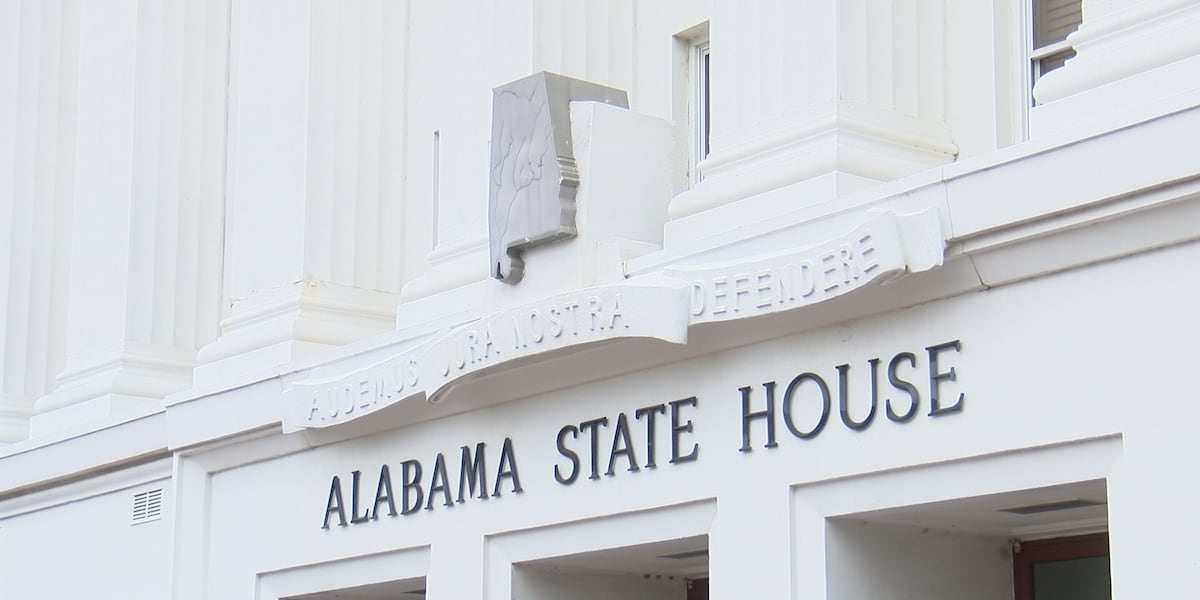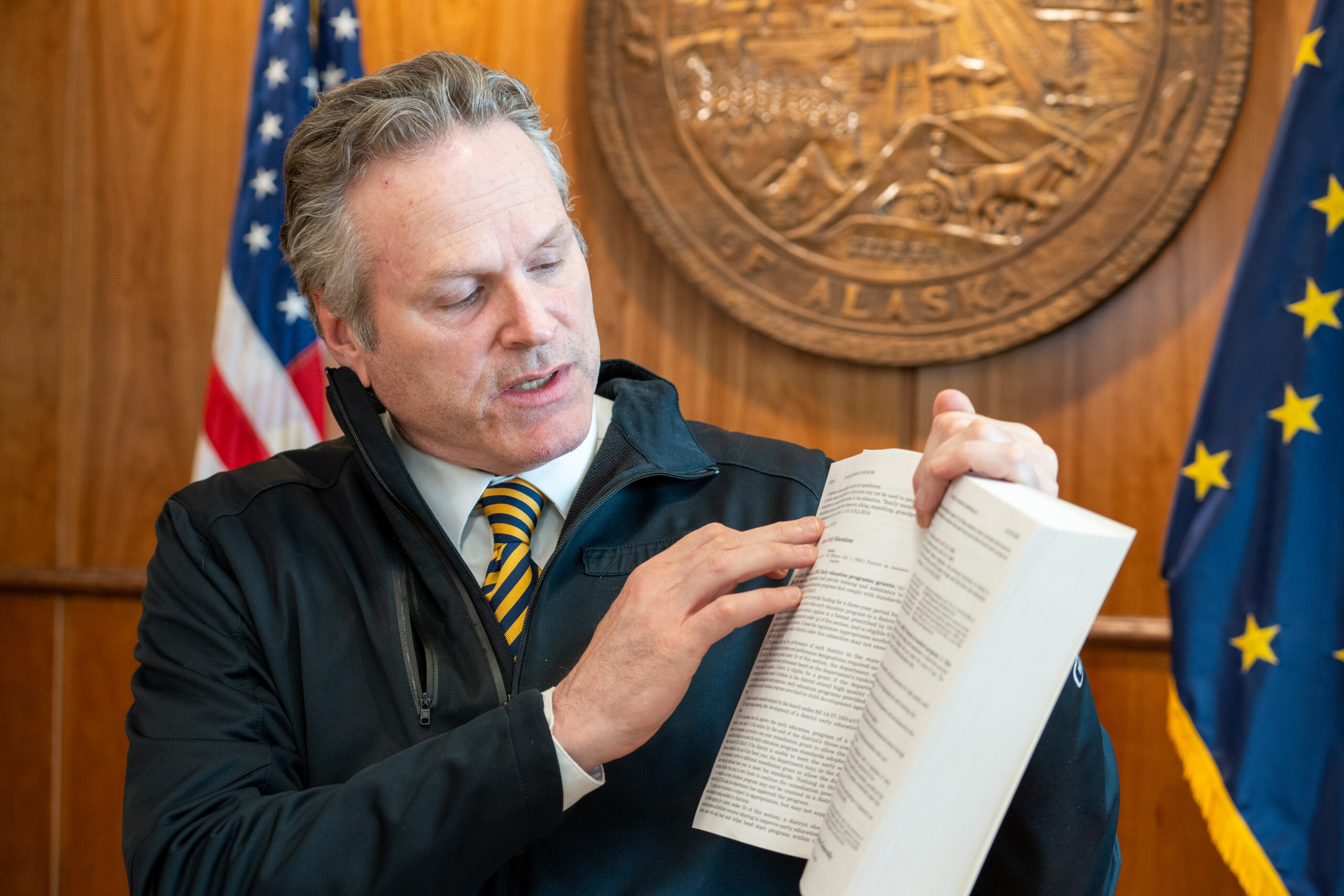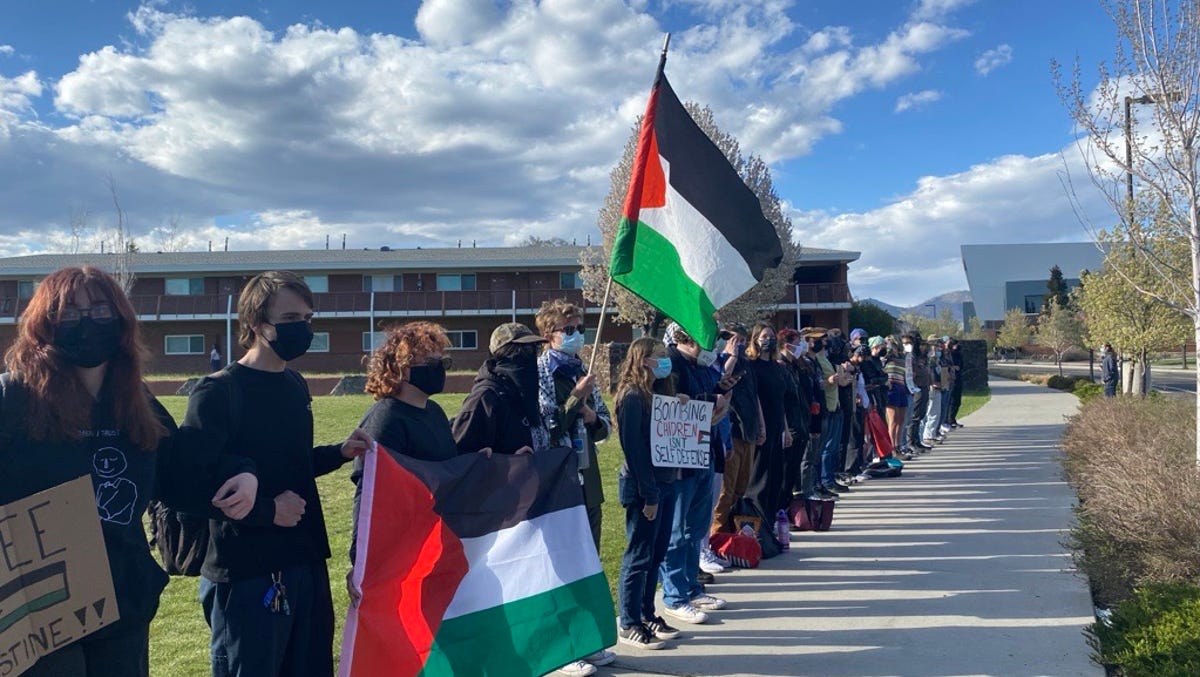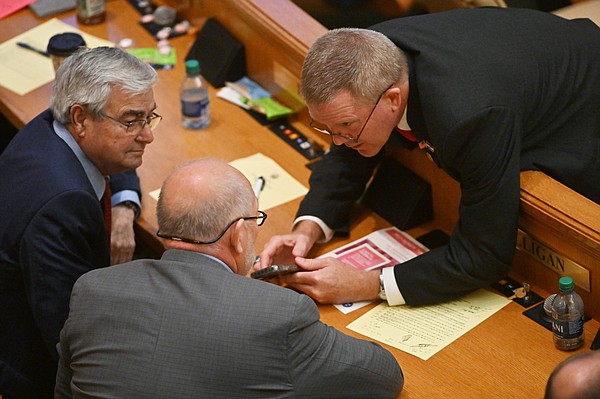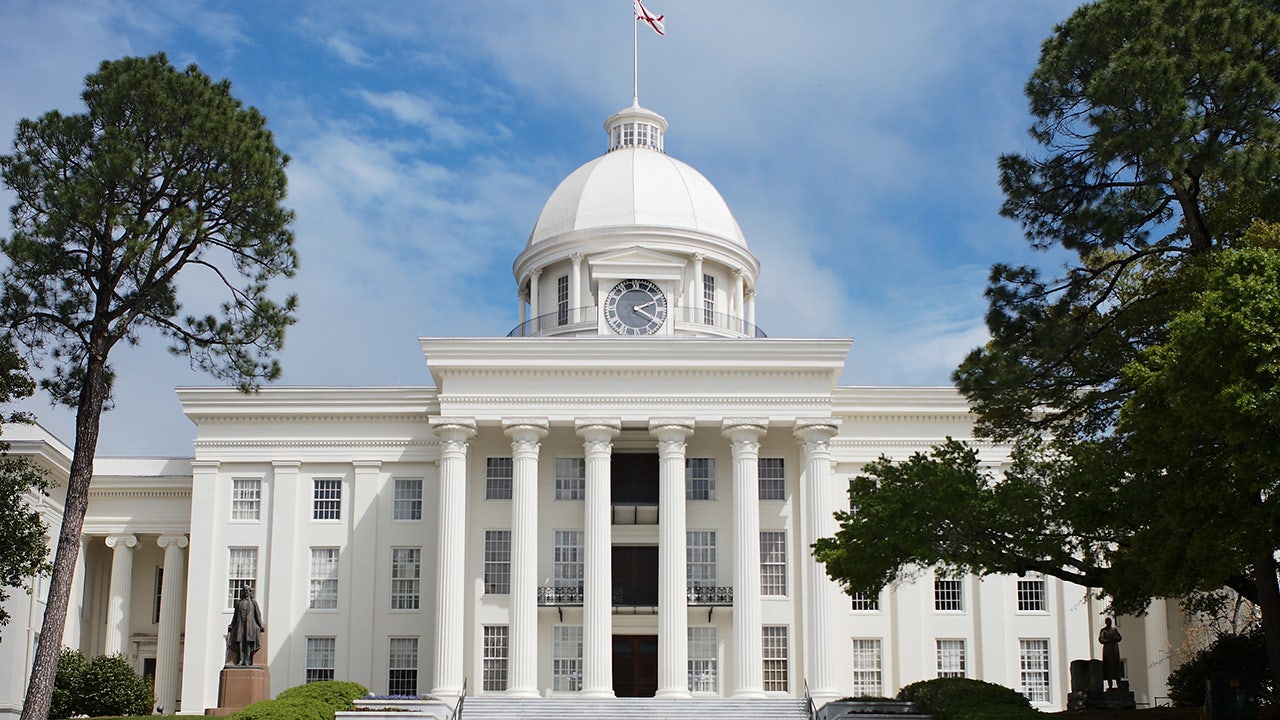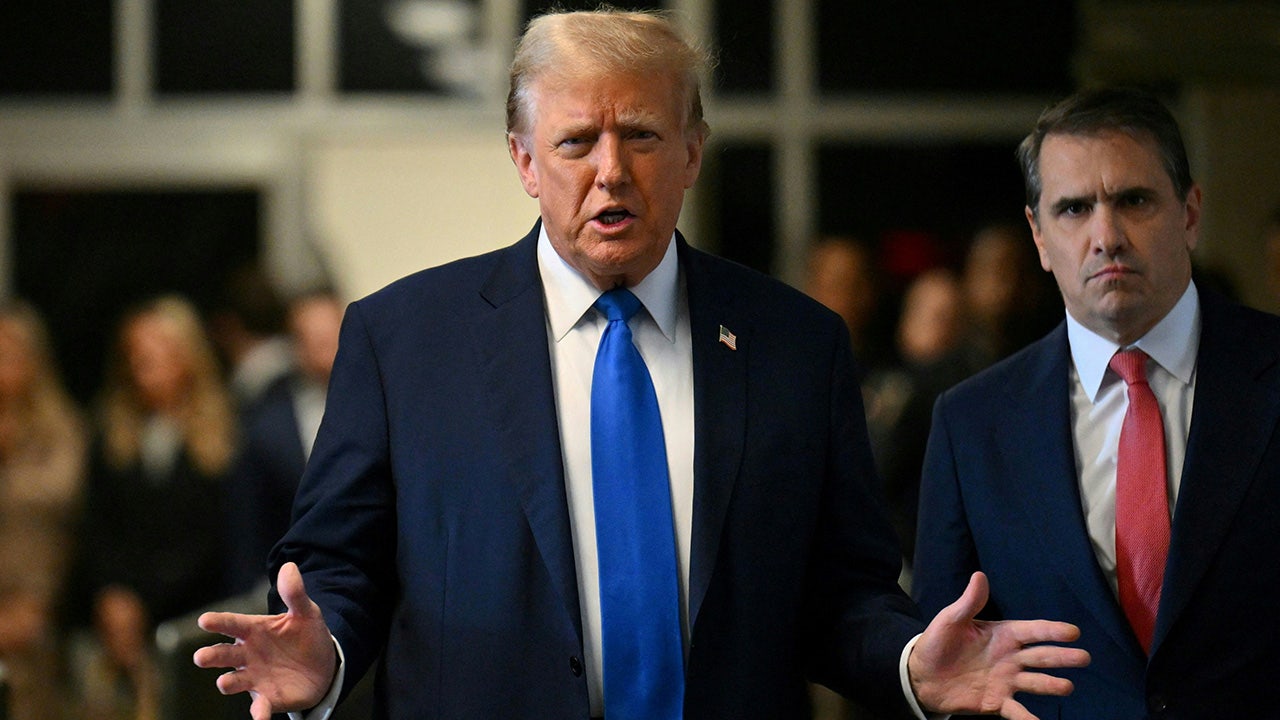Virginia
Ahead Of 4/20, National Democratic Group Slams Virginia GOP Governor For Marijuana Vetoes
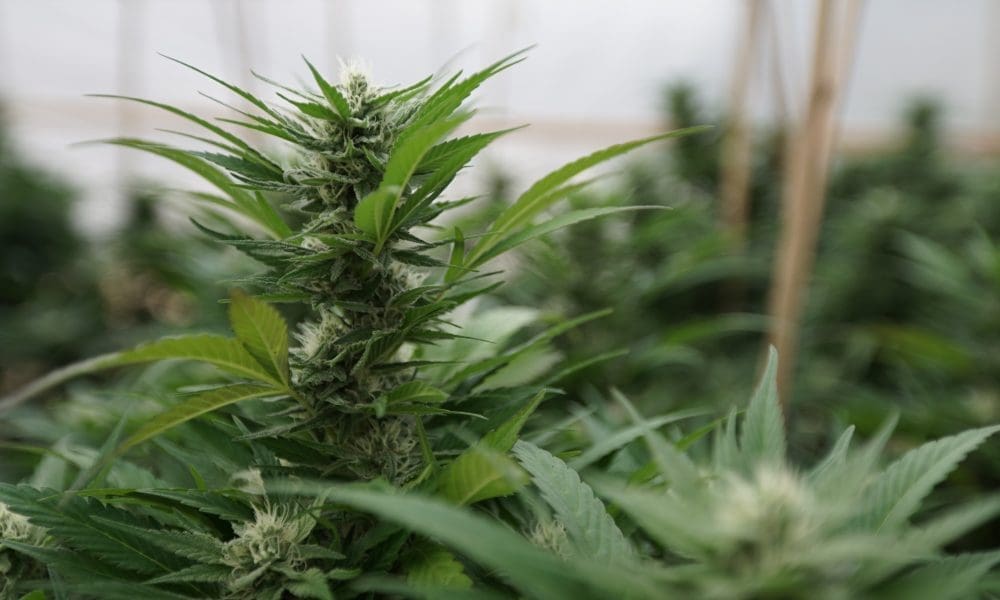
A national Democratic Party group is bashing Virginia Gov. Glenn Youngkin’s (R) “harmful opposition to marijuana reform” ahead of the 4/20 cannabis holiday, calling out the GOP governor’s recent vetoes of bills to legalize retail sales and reduce sentences around past marijuana crimes.
In a statement tied to the 4/20 cannabis holiday and shared exclusively with Marijuana Moment on Friday, the Democratic Legislative Campaign Committee (DLCC), which focuses on electing Democrats to state legislatures, said Youngkin “continues to hold Virginia back and block the progress made by Democrats in control of the legislature.”
Use, possession and limited cultivation of cannabis by adults is already legal in Virginia, the result of a Democrat-led proposal approved by lawmakers in 2021. But Republicans, after winning control of the House and governor’s office later that year, subsequently blocked the required reenactment of a regulatory framework for retail sales. Since then, illicit stores have sprung up to meet consumer demand.
This year, with Democrats in control of both legislative chambers, lawmakers passed a new legal sales bill, sending it to Youngkin for his consideration in late February. A month later, the governor vetoed the bill, writing in a veto message that “the proposed legalization of retail marijuana in the Commonwealth endangers Virginians’ health and safety.”
“Let’s be blunt,” DLCC Communications Director Abhi Rahman said in the new 4/20 statement. “Gov. Youngkin is hindering economic opportunity and needed criminal justice reform in Virginia. Legalizing marijuana sales would diversify Virginia’s economy and open new avenues for economic growth. Reducing the sentence time for petty marijuana offenses would change the lives of hundreds of Virginians.”
DLCC says the reform would have boosted local economies and reduced or commuted the sentences of nearly 400 people imprisoned on marijuana charges.
The group cited a Marijuana Policy Project report from last year showing states have made more than $15 billion in tax revenue from legal marijuana as well as a poll from a year ago showing 60 percent support for the policy change in Virginia. The resentencing bill, meanwhile, would have provided relief to 400 prisoners, DLCC said.
“Support for forward-thinking policies around marijuana is at an all-time high in Virginia, which is why the new Democratic legislative majorities have taken joint action to push the state forward,” Rahman said. “While Youngkin’s vetoes keep Virginia stuck in the past and worse off, the DLCC remains committed to fighting for Democratic power that supports budding industries, economic development, and fundamental freedoms in the states.”
DLCC has consistently used 4/20 as an opportunity to promote cannabis reform, for example tweeting last year that “Almost every state with a Dem-led legislature has acted to ensure people with past cannabis convictions have a path to remove them from their records” and that “There are only 10 states where cannabis hasn’t been legalized or decriminalized – and all of them are run by Republican legislatures.”
There are only 10 states where cannabis hasn’t been legalized or decriminalized – and all of them are run by Republican legislatures. And of the 19 states that still permit jail time for possession of small amounts of cannabis, 18 of them have GOP legislatures.
— Democratic Legislative Campaign Committee (@DLCC) April 20, 2023
A year earlier, DLCC posted that “It’s high time we celebrate how Democrats in the states are blazing a trail to decriminalize, legalize, & regulate marijuana with an important focus on racial justice!”
Following the Virginia governor’s veto of the regulated industry bill, Democratic senators said this week it’s likely legal stores won’t open in Virginia until 2027 or later.
“I’m very direct, and sometimes folks don’t like to hear the harsh truth, but it’s the harsh truth,” said Sen. Aaron Rouse (D), who sponsored the retail sales bill in the Senate. “There’s a really big mountain to climb with this governor and his administration. I think he will veto setting up an adult cannabis market regardless of what we send him.”
“I’m not going to try to rationalize the governor’s statement,” added Sen. Adam Ebbin (D), who sponsored marijuana sales legislation this session and in years past. He said Youngkin “has been antagonistic to this now-legal-to-possess plant in Virginia throughout his remarks on cannabis.”
In the House, Del. Paul Krizek (D), who led this year’s cannabis retail bill in that chamber, has already said he’s intending to support a legal sales bill next session.
“We really did craft a wonderful piece of bicameral legislation that even garnered bipartisan support, albeit not as many members as I would have expected, but that was probably due to Governor’s antipathy toward it,” he told Marijuana Moment after Youngkin’s veto. “So, we have a bill we can introduce next session that will only need some minor adjustments (I did see some small improvements we can make) and gives us a head start.”
The governor this session also greeted less controversial marijuana reforms coldly. In March, he vetoed a separate House proposal that would have prevented the state from using marijuana alone as evidence of child abuse or neglect despite the measure winning unanimous or near-unanimous approval in votes on the Senate floor. Last month he blocked the Senate version that measure.
One cannabis reform that did win Youngkin’s signature this session was legislation to allow public sector workers like firefighters and teachers to use legal medical marijuana without fear of losing their jobs. The governor signed that bill earlier this month.
Ahead of his veto of the legal sales proposal, Youngkin had hinted at his intentions to veto the bill, telling a local reporter: “Anybody who thinks I’m going to sign that legislation must be smoking something.”
At one point earlier this session, however, it appeared the retail cannabis bill could become part of a grand deal between Youngkin and legislative Democrats. In December, Senate President Pro Tempore Louise Lucas (D) alluded to a compromise involving a sports stadium project the governor supported. But that deal never materialized, and Democrats left the governor’s proposed arena plan out of budget legislation.
— Learn more about our marijuana bill tracker and become a supporter on Patreon to get access.
Marijuana Moment is tracking more than 1,400 cannabis, psychedelics and drug policy bills in state legislatures and Congress this year. Patreon supporters pledging at least $25/month get access to our interactive maps, charts and hearing calendar so they don’t miss any developments.
—
The legislation sent to Youngkin would have begun licensing marijuana businesses later this year, with sales slated to kick off on May 1, 2025. Sales to adults 21 and older of up to 2.5 ounces of marijuana flower would be allowed, with purchases taxed at 11.625 percent. Local governments could ban marijuana establishments, but only with the support of local voters.
Here’s what Virginia’s lawmaker-passed retail sales legislation would have done:
- Retail sales could begin as of May 1, 2025.
- Adults would be able to purchase up to 2.5 ounces of marijuana in a single transaction, or up to an equivalent amount of other cannabis products as determined by regulators.
- A state tax of 11.625 percent would apply to the retail sale of any cannabis product. Of that, 8 percent would go to the state, local governments would get 2.5 percent and 1.125 percent would fund schools.
- The Virginia Cannabis Control Authority would oversee licensing and regulation of the new industry. Its board of directors would have the authority to control possession, sale, transportation, distribution, delivery and testing of marijuana.
- Local governments could ban marijuana establishments, but only if voters first approve an opt-out referendum.
- Locations of retail outlets could not be within 1,000 feet of another marijuana retailer.
- Cultivators would be regulated by space devoted to marijuana cultivation, known as canopy size. Both indoor and outdoor marijuana cultivation would be allowed, though only growers in lower tiers—with lower limits on canopy size—could grow plants outside. Larger growers would need to cultivate plants indoors. Secure greenhouses would qualify as indoor cultivation.
- Only direct, face-to-face transactions would be permitted. The legislation would prohibit the use of other avenues, such as vending machines, drive-through windows, internet-based sales platforms and delivery services.
- Existing medical marijuana providers that enter the adult-use market could apply to open up to five additional retail establishments, which would need to be colocated at their existing licensed facilities.
- Serving sizes would be capped at 10 milligrams THC, with no more than 100 mg THC per package.
- No person could be granted or hold an interest in more than five total licenses, not including transporter licenses.
- People with convictions for felonies or crimes involving moral turpitude within the past seven years would be ineligible to apply for licensing, as would employees of police or sheriff’s departments if they’re responsible for enforcement of the penal, traffic or motor vehicle laws of the commonwealth.
- An equity-focused microbusiness program would grant licenses to entities at least two-thirds owned and directly controlled by eligible applicants, which include people with past cannabis misdemeanors, family members of people with past convictions, military veterans, individuals who’ve lived at least three of the past five years in a “historically economically disadvantaged community,” people who’ve attended schools in those areas and individuals who received a federal Pell grant or attended a college or university where at least 30 percent of students are eligible for Pell grants.
- “Historically economically disadvantaged community” is an area that has recorded marijuana possession offenses at or above 150 percent of the statewide average between 2009 and 2019.
- Tax revenue from the program would first cover the costs of administering and enforcing the state’s cannabis system. After that, 60 percent of remaining funds would go toward supporting the state’s Cannabis Equity Reinvestment Fund, 25 percent would fund substance use disorder treatment and prevention, 10 percent would go to pre-K programs for at-risk children and 5 percent would fund a public health and awareness campaign.
- Adults could also share up to 2.5 ounces with other adults without financial remuneration, though gray-market “gifting” of marijuana as part of another transaction would be punishable as a Class 2 misdemeanor and a Class 1 misdemeanor on second and subsequent offenses.
- A number of other new criminal penalties would be created. Knowingly selling or giving marijuana or marijuana paraphernalia to someone under 21, for example, would be a Class 1 misdemeanor, punishable by up to a year in jail and a maximum $2,500 fine, as would knowingly selling cannabis to someone reasonably believed to be intoxicated. It would also be a Class 1 misdemeanor to advertise the sale of marijuana paraphernalia to people under 21.
- Knowingly obtaining marijuana on behalf of someone under 21 would be a Class 1 misdemeanor.
- People under 21 who possess or use marijuana, or attempt to obtain it, would be subject to a civil penalty of no more than $25 and ordered to enter a substance use disorder treatment and/or education program.
- Illegal cultivation or manufacture of marijuana, not including legal homegrow, would be a Class 6 felony, punishable by up to five years imprisonment and a $2,500 fine.
- People could process homegrown marijuana into products such as edibles, but butane extraction or the use of other volatile solvents would be punishable as a Class 1 misdemeanor.
This Will Be The ‘Last 4/20 Celebration’ With Marijuana Still In Schedule I, Congressman Says, While Predicting House Action On Cannabis Banking Bill
Photo courtesy of Chris Wallis // Side Pocket Images.

Virginia
36th Annual Virginia Wine & Craft Festival: A Day of Delight in Front Royal
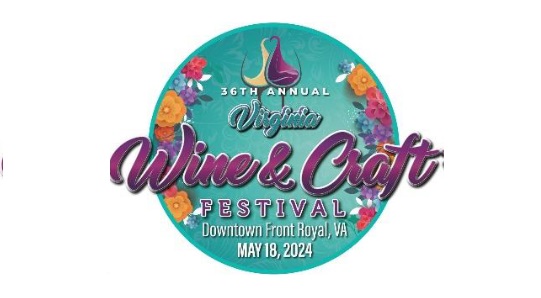
On Friday, April 26, the Front Royal Rotary sponsored a downtown Front Royal “Pub Crawl” featuring a Phony Ponies “horse race” ticket holders could bet on to add to the Rotary fundraiser, and a little reward for their knowledge of the relative prowess and breeding of the involved Phony Ponies. Or as one pre-race announcer informed the crowd, “We’ve got three stallions and two old mares in this race,” which was met by some boos from the filly-supporting contingent.
And it was one of those two filly mares that led the five-horse field across the finish line after three laps around the Gazebo in the in the Main Street Downs Raceway shortly after 7:30 p.m. — that was “Blazin’ Botox” (Warren County Sheriff Crystal Cline), followed in order by “Money for Nothing” (Front Royal Rotary President Ken Evans), “Closing Real Fast” (Front Royal Police Chief Kahle Magalis), “Bullseye” (Warren County Rotary President Michael Williams), and “The Old Gray Mare” or was that “Mayor” (Front Royal Mayor Lori Cockrell).
The Rotary Pub Crawl stops at the Buckle and Belle Boutique ‘Hat Bar’ in time to dress for the occasion, as in Kentucky Derby fancy hats. Why Kentucky Derby fancy hats? Well, it’s almost post time for the Phony Ponies, one of which is taking care of some pre-race unfinished business as you often see the real horses do on the way to the gate. Royal Examiner Photos Roger Bianchini

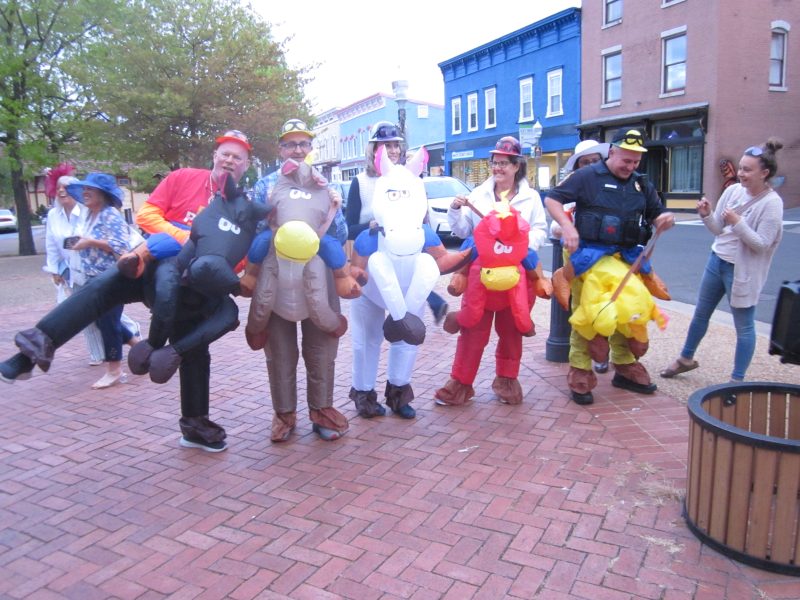
It was a highly competitive race with some post finish line challenges offered by runner up Money for Nothing, whose jockey Evans noted an unapproved by the Racing Commission pre-race change into borrowed running shoes by the winner, as well as some out-of-my-lane territorial elbow-bumping by Blazin’ Botox to keep him in his 2nd place position. WAIT, do horses have elbows? I guess phony ones do.

Race fans grew anxious as post time approached. All five Phony Ponies are at the starting line. Might that inside post position drawn by Blazin’ Botox prove a difference maker in the long run? And they’re OFF and the cameras are popping.


Jockey Cockrell explained her disappointing 5th place finish, noting she had locked in behind Bullseye/Williams early in the running. However, it ended up being a bad spot to draft, as Bullseye appeared to be having an equipment break-down in front of her, as in a drooping “saddle” threatening that stallions stability and which she had to pull back from for caution’s sake.
On the more serious side, the second annual Talk Derby To Me Pub Crawl fundraiser was in support of Rotary International’s eradicate polio worldwide effort. More information about Rotary’s efforts to end polio can be found at this website: https://www.rotary.org/en/our-causes/ending-polio
Involved and supporting downtown businesses included Vibrissa, the On Cue Sports Bar & Grill, Buckle & Belle Boutique, sponsor of the “Phony Ponies” race, C&C Frozen Treats, Pavemint Smoking Taphouse, Honey & Hops, Catamount Lounge, and Garcia & Gavino. Hope we didn’t miss anyone, and we’ll update as necessary if we did.
And in a late update, individual sponsoring of the Phony Ponies was provided by: Ken Evans, ReMax Reality sponsoring Evans on “Money For Nothing”; CSM Aesthetics sponsored “Blazin’ Botox” and jockey Cline; Clint Pierpoint, Next Home Reality Select sponsored “Closing Real Fast” with Chief Magalis on the saddle; Lori Cockrell for Mayor sponsored “The Old Grey Mare” with the mayor riding; and Shenandoah Valley Axe Throwing Co. sponsored the saddle-failing “Bullseye” with Williams keeping his stallion upright.
And if you missed the fun and excitement, here are a few more shots.

Jockeys try to get a handle on their situation during a warm-up lap. Wonder where that inside post position horse is? Uh oh, 3 racing laps around the Gazebo and there she is crossing that finish line in the lead, and it’s straight to the Winner’s Circle.


Below, second place Money for Nothing jockey Ken Evans gives a congratulatory nod to the winner, even with those late-acquired un-sanctioned shoes. And a final nod to the crowd from this year’s Phony Ponies leader of the pack Blazin’ Botox, out of the WCSO stables.


Virginia
Virginia air travelers have one year to get REAL ID

RICHMOND, Va. (WDBJ) – Virginia residents who want to board an airplane for a domestic flight will soon need a REAL ID-compliant driver’s license, according to a reminder from the Transportation Security Administration. If the license is not REAL ID-compliant, travelers will need another form of approved identification, such as a passport to board a flight or enter a secure federal facility or military base.
The REAL ID driver’s license and identification card have a small star in the upper right corner to indicate they meet federal regulations that establish minimum security standards.
REAL ID goes into effect May 7, 2025.
“REAL ID is a coordinated effort by the federal government to improve the reliability and accuracy of driver licenses and identification cards,” says Robin “Chuck” Burke, TSA’s Federal Security Director for Richmond International Airport. “The improvements are intended to inhibit terrorists’ ability to evade detection by using fraudulent identification.”
Virginia residents have the option to upgrade to a REAL ID if their licenses do not currently have the star, or stick with an older standard driver’s license. However, TSA says, a standard credential—without the star—will not be valid to board a domestic flight or to access secure federal facilities, including military bases and some federal offices.
To get the REAL ID star, Virginians will need to visit a local Virginia Department of Motor Vehicles office in person and have with them certain documents to prove U.S. citizenship and Virginia residency. Required documents include one proof of identity (passport or U.S. birth certificate), proof of legal presence for non-U.S. citizens, two proofs of Virginia residency, social security card (if issued) and a current driver’s license if you are applying to exchange one issued by another U.S. state.
Transportation Security Administration officers who staff the ticket document checking station at airports will not allow travelers into the checkpoint without a REAL ID-compliant license or another form of acceptable ID after May 7, 2025, according to TSA, because of a federal law (The REAL ID Act of 2005) that mandates a REAL ID is needed for federal purposes.
Travelers will start to notice new signs at airports nationwide to remind them that REAL ID-compliant licenses or other acceptable forms of ID, such as a valid passport, federal government PIV card or U.S. military ID, will be mandatory for air travel beginning on May 7, 2025, Burke explained. “Critically important, on May 7, 2025, individuals who are unable to verify their identity may not be permitted to enter the TSA checkpoint and will not be allowed to fly,” he said.
For more information and details about how to obtain a REAL ID-compliant driver’s license or identification card in Virginia, visit Virginia’s Department of Motor Vehicles website.
Copyright 2024 WDBJ. All rights reserved.
Virginia
Report: Javon Small Commits to West Virginia
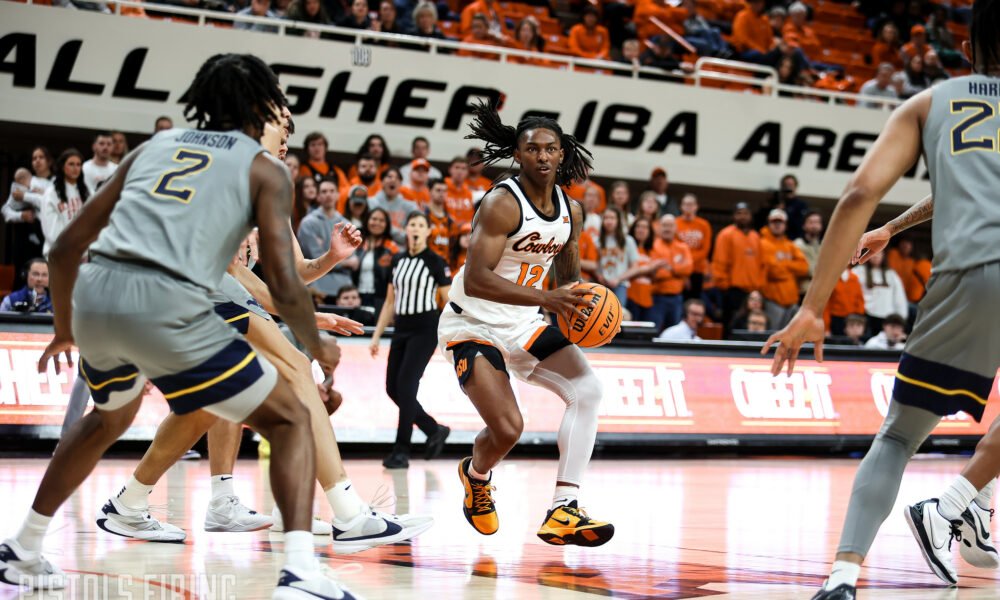
TRANSFER PORTAL TRACKER
Javon Small is staying in the Big 12, but he isn’t returning to Oklahoma State.
Small on Wednesday committed to West Virginia, according to multiple reports. Small played one season at OSU, where he averaged 15.1 points, 4.7 rebounds and 4.1 assists a game before entering the transfer portal.
Small led the Cowboys in scoring this past season while shooting 37% from 3-point range. He scored 20 or more points six times for OSU this past season.
This marks Small’s second transfer, as he came to Oklahoma State after two seasons at East Carolina. He is originally from South Bend, Indiana.
Small joins a West Virginia squad that is also going through a coaching transition. Interim coach Josh Eilert was not retained after the Mountaineers went 9-23 this past season. That led to WVU hiring Drake’s Darrian DeVries.
With Small committing to West Virginia, all five players who entered the portal from this past season’s OSU team have announced new destinations:
Small — West Virginia
Brandon Garrison — Kentucky
Eric Dailey Jr. — UCLA
Justin McBride — Nevada
Quion Williams — Abilene Christian
New OSU coach Steve Lutz has six scholarships still to use after adding portal additions Arutro Dean (FIU), Robert Jennings II (Texas Tech) and Marchelus Avery (UCF). Those three join Bryce Thompson, Jamyron Keller, Connor Dow and incoming freshman Jeremiah Johnson on OSU’s current roster.
-

 News1 week ago
News1 week agoLarry Webb’s deathbed confession solves 2000 cold case murder of Susan and Natasha Carter, 10, whose remains were found hours after he died
-

 Education1 week ago
Education1 week agoVideo: Dozens of Yale Students Arrested as Campus Protests Spread
-

 World1 week ago
World1 week agoHaiti Prime Minister Ariel Henry resigns, transitional council takes power
-

 News1 week ago
News1 week agoFirst cargo ship passes through new channel since Baltimore bridge collapse
-

 World1 week ago
World1 week agoUS secretly sent long-range ATACMS weapons to Ukraine
-

 World1 week ago
World1 week agoSpanish PM Pedro Sanchez suspends public duties to 'reflect'
-

 News1 week ago
News1 week agoAmerican Airlines passenger alleges discrimination over use of first-class restroom
-

 World1 week ago
World1 week agoAsia bears biggest climate-change brunt amid extreme weather: WMO



